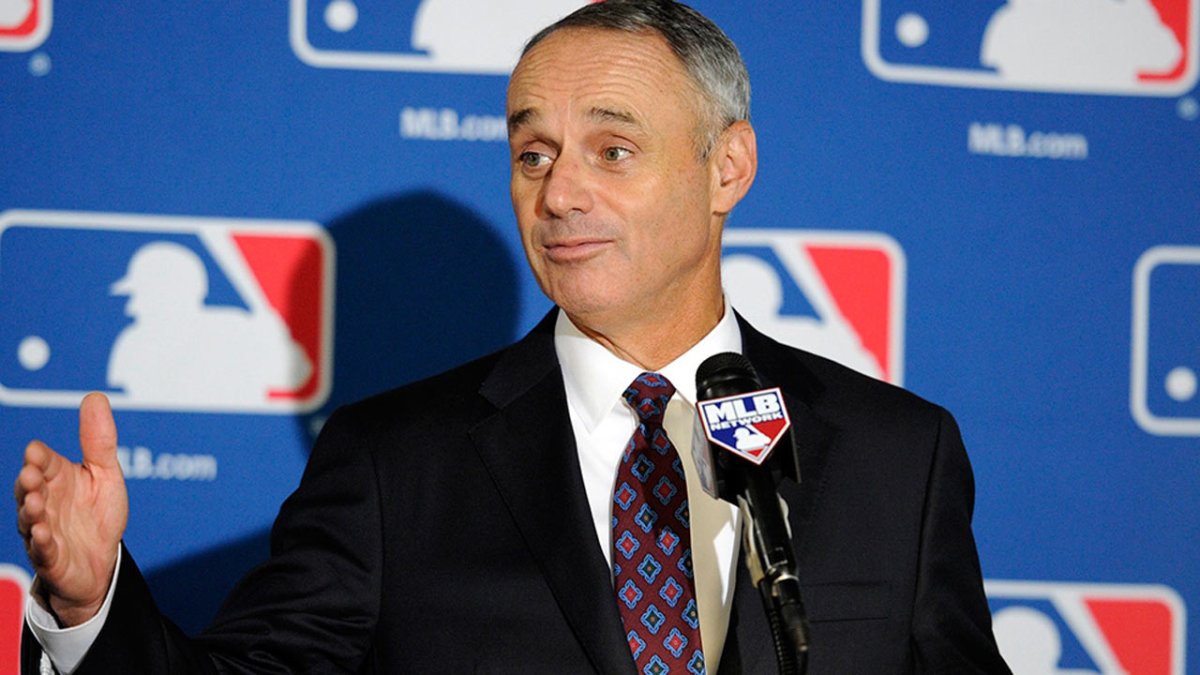Yesterday, just hours before the old CBA was set to expire and send MLB into its first work stoppage since the ugly strike of 1994, the opposing sides came to an agreement on a brand new collective bargaining agreement. There are plenty of reasons this CBA took so long to become solidified, like the possible institution of an International Draft and a remodeling of free agency, but the owners and the union were able to compromise enough to avoid a lockout. 21 straight years of labor peace, that’s what I’m talking about. So now, let’s see how this new CBA is going to have an effect on Major League Baseball now and in the future.
Luxury Tax: Baseball is essentially doing its best to have a salary cap without actually having a salary cap. And up till now, that’s happened in the form of a Luxury Tax that is imposed on teams whose payrolls exceed the limit set by the CBA, which is currently $235 million. If a team’s salary exceeds this, they’re subject to a penalty. In the past, the highest tax rate a team could have to pay was 50%; now that limit no longer exists. Teams will pay the tax according to how much they exceed the cap by. This improved on but didn’t fix a prominent argument against the luxury tax; if a team can afford to spend more than the cap on players, isn’t it safe to assume they can afford to pay the tax as well? It was discussed to have this penalty involve draft picks as well, which would hinder the team in a much different, more apparent way, but that discussion seems to have fizzled. Regardless, as ESPN’s Jayson Stark writes, the Dodgers are kinda fuuuuuuucked:

Free Agency: The main talk here surrounded the rule that forces teams to forfeit a 1st-round draft pick if they sign a free agent that previously rejected a qualifying offer. It’s a strange rule, and now it’s been tinkered with a little; teams will still have to forfeit a draft pick, but a lower pick. And, if the team is also over the luxury tax threshold, they’ll forfeit two picks; a 2nd- and 5th-rounder.
International Draft: The arguments for and against an international draft are both good ones. In arguing for it, the owners cited safety above all; the idea to eliminate stories like Yasiel Puig or Jose Fernandez being smuggled to America overnight and having to face threats from those who helped them once they were here and signed huge deals. But additionally (and, in reality, more important to the owners), an international draft would be a huge money-saving maneuver for teams as opposed to spending tens of millions of dollars to lock up a talented player who hasn’t even seen a major league fastball yet. The players, on the other hand, love the current system; obviously. It was clear, however, that something had to change, and something did; teams now have a $5 million per year cap on signing international free agents. No exceptions. It will certainly change the landscape of signing free agents from overseas, but exactly to what extent we have no idea – yet.
Tobacco: In the last year, Boston joined Chicago, LA, and San Francisco as cities that have banned the use of smokeless tobacco in public parks. And yes, public parks encompasses major league stadiums. Many a player has been caught on camera violating these statutes, and none have been punished (as far as we know), so the new CBA went a step further; tobacco is now banned among major league players – sorta. If you’ve played at least 1 day of major league baseball as of today, you’re free to dip and chew all you want, but the newcomers can’t. It’s a strange rule that will need changing over time to reach their ultimate goal, which is to remove the substance from the game altogether, but an interesting wrinkle to the new agreement.
Scheduling: A minor story, but starting in 2018 the season will start 4 days earlier. As a result, 4 more days off will be scattered throughout the season to give players a little extra rest, especially when the dog days of summer roll around. Schedule makers will also push for day games when both teams face a long flight immediately after the game. All of these are efforts to minimize exhaustion, which, the league hopes, will help keep some of its stars off the disabled list.
All-Star Game: I’d always been in the minority group for this, but I’ve always kinda liked the idea that the ASG decides home-field advantage for the World Series. It’s a strange stipulation, but it helps provide something that no other league can claim; an interesting, competitive All-Star Game. MLB’s Midsummer Classic has boasted the best ASG ratings out of the 4 major sports in the last few years, and I personally think the “This One Counts” idea was a part of this. I won’t say it’s the only reason the game got good ratings, because that’s certainly not true and we had great All-Star Games before this rule came into place, but it certainly helped. Nevertheless, I guess we’ll see the effect of this when the 2017 ASG in Miami rolls around.
More details about the agreement will undoubtedly emerge in the following days and weeks, and while some will be hated and some loved, one thing is now certain: we will have baseball in 2017. And thank God for that.
